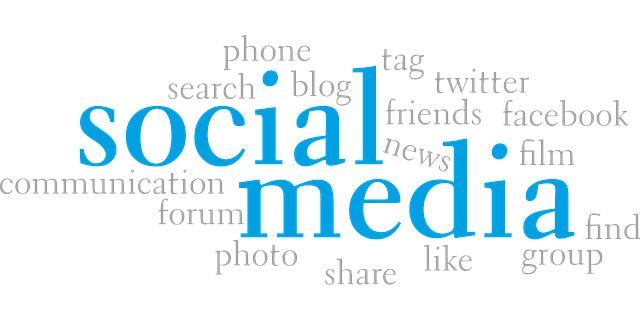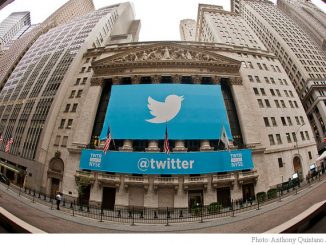
Major social media, notably Twitter (NYSE:TWTR) and Facebook (NASDAQ:FB), are gradually moving to censor what is communicated on them. In Twitter’s case, the primary stated rationale is to “protect its users from abuse and harassment.” It has also taken upon itself to “[identify] and [collapse] potentially abusive and low-quality replies so the most relevant conversations are brought forward.” There are widespread reports that Twitter engages in “shadowbanning”, i.e., hiding the Tweets of those users it identifies as objectionable, and making these Tweets inaccessible in searches.
Further, there are suspicions that there is a political and ideological component to the filters that Twitter applies, with conservative (and especially alt-right) content and users being more likely to fall afoul of these restrictions: the relentlessly leftist tilt of CEO Jack Dorsey (and most of its employees) gives considerable credence to these suspicions.
For its part, Facebook is pursuing ways to constrain users from posting what it deems as “misinformation” (aka “fake news”). This includes various measures such as cooperating with “third party fact-checking organizations“. Given the clear leftist tilt of Mark Zuckerberg and Facebook’s workforce, and the almost laughably leftist slant of the “fact-checkers”, there is also considerable reason for concern that the restrictions will not be imposed in a politically neutral way.
The off-the-top classical liberal/libertarian response to this is likely to be “well, this is unfortunate, but these are private corporations, and they can do what they want with their property.” But however superficially plausible this position appears to be, in fact there is a principled classical liberal/libertarian response that arrives at a very different conclusion. In particular, as arch-libertarian Richard Epstein (who styles himself as The Libertarian in his Hoover Institute podcast) has consistently pointed out, even during the heyday of small government, classical liberal government and law, the common law recognized that restrictions on the autonomy of certain entities was not only justifiable, but desirable. In particular, natural monopolies and near-monopolies were deemed to be “common carriers” upon whom the law imposed a duty of providing access on a non-discriminatory basis. The (classically liberal) common law of that era recognized that such entities could exercise market power, or engage in discriminatory conduct without fear of competitive check. Thus, the obligation to serve all on a non-discriminatory basis in order to constrain the exercise of market power, or invidious discrimination based on the preferences of the owner of the common carrier.
Major social media (and Google as well–perhaps most of all) clearly have market power, and the ability to discriminate without fear of losing business to competitors. The network nature of social media (and search engines) leads to the dominance of a small number of platforms, or even one platform. Yes, there are competitors to Facebook, Twitter, and Google (NASDAQ:GOOG), but these companies are clearly dominant in their spaces, and network effects make them largely immune to competitive entry. Imposition of a common carrier-inspired obligation to provide non-discriminatory access is therefore quite reasonable, and has a substantial economic and legal foundation. Thus, libertarians and classical liberals and conservatives and even fringe voices should not resign themselves to being second or third class citizens on social media, merely because these are private entities, rather than government ones. (Indeed, the analogy should go the other direction. A major reason for limiting the ability of the government to control speech is because of its monopoly of legal violence. It is monopoly power, regardless of whether in a market or political setting, that needs to be constrained through things like rights to free speech, or non-discriminatory access to common carriers.)
Further, insofar as leftists (including the managements of the major social media companies) are concerned, it is utterly incoherent for them to assert that as private entities they are perfectly free to restrict access according to their whims, given that leftists also adamantly (indeed, obnoxiously) insist that anti-discrimination laws should be imposed on small entities operating in highly competitive environments. Specifically, leftists believe that bakers or caterers or pizzarias with zero market power should be required to serve all, even if they have religious (or other) objections to doing so. But a baker refusing to sell a wedding cake to a gay couple does not meaningfully deprive said couple of the opportunity to get a cake: there are many other bakeries, and given the trivial costs of entry even if most incumbent bakers don’t want to serve gays, this only provides a commercial opportunity for entrant bakers to cater to the excluded clientele. Thus, discrimination by Baker A does not impose large costs on those s/he would prefer not to serve (even though forcing A to serve them might impose high costs on A, due to his/her sincere religious beliefs).
The same cannot be said of Twitter or Facebook. Given the nature of networks, social and otherwise, entrants or existing competitors are very poor substitutes for the dominant firms, which gives them the power to exclude, and which makes their exercise of this power extremely costly to the excluded. In other words, if one believes that firms in highly competitive markets should be obligated to provide service/access to all on a non-discriminatory basis, one must concede that the Twitters, Facebooks, and Googles of the world should be similarly obligated, and that given their market power their conduct should be subject to a substantially higher degree of scrutiny than a small firm in a competitive market.
Of course, it is one thing to impose de jure an obligation on Twitter et al to provide equal access and equal treatment to all, regardless of political beliefs, and quite another to enforce it de facto. Of course Jack and Mark or Sergey don’t say “we discriminate against those holding contrary political opinions.” No, they couch their actions in terms of “protecting against abusive behavior and hate speech” or “stamping out disinformation.” But they retain the discretion to interpret what is abusive, hateful, and false–and it is clear that they consider much mainstream non-leftist belief as beyond the pale. Hence, enforcement of an open non-discriminatory access obligation would be difficult, and would inevitably involve estimation of discriminatory outcomes using statistical measures, a fraught exercise (as employment discrimination law demonstrates). Given the very deep pockets that these firms have, moreover, prevailing in a legal battle would be very difficult.
But this is a practical obstacle to treating social media like common carriers with a duty to provide non-discriminatory access. It is not a reason for classical liberals and libertarians to concede to dominant social network operators that they have an unrestricted right to restrict access as a matter of principle. In fact, the classical liberal/libertarian principle cuts quite the other way. And at the very least, imposing a common carrier-like obligation would substantially raise the cost that social network operators would pay to indulge in discrimination based on politics, beliefs, or ideology, and this could go a long way to make these places safe for the expression of political opinions that drive Jack, Mark, et al, nuts.




The arguments made here lack fair basic analogies that show some modicum of critical thinking. So here’s one: the point is made that social media companies have all this market power (thought not monopoly power, which in and of itself brings down the entire point of view here), despite their very narrow control over the vast and diverse ways by which news and information gets consumed, and thus should not be able to exercise their first amendment rights to be as biased as they wish.
Supposedly their market power prevents.competition in the market for disseminating content. Except they have plenty of competition: cable news, online news websites, reddit, local TV news, radio internet radio, podcasts, etc etc. Fox News makes editorial decisions every day to not carry liberal points of view. And on my mom’s cable package she has the “choice” of 2 national news channels, Fox and CNN. 2. That’s it. no MSNBC or OAN or CNBC. So does her limited choice in the narrow medium of cable news mean that Fox and CNN should not be allowed to exercise editorial bias?
The point of view here reminds me of the narrow thinking the FCC used as it considered blocking Sirius from acquiring XM because monopoly or whatever. Except, you know, FM radio, podcasting, MP3s, Spotify, etc etc etc.
Moreover, there’s no discussion of comparative audience sizes across horizontal media types. You’ll find that Twitter in particular.has such a small audience that characterizing it as having actual market power that’s adjacent to a monopoly would make Fox and CNN scream blogging malpractice on your part. They get no respect, they’d say.
Please, next time, analogize and expand your imagination and demonstrate an understanding of the media consumption landscape to make a persuasive argument.
The difference between Twitter/Facebook vs cable news etc is this. User generated communication. The telephone services are considered a common carrier, yet without users to communicate using that tool/platform, telephone services would not be utilized at all. Other media, such as newspapers can print whatever and still exists if nobody even reads it. Furthermore, network news such as CNN, Fox, etc don’t have any way of restricting those who would avail themselves of the services.
This is why the argument is calling for the designation of common carrier. It is more akin to operating like the town square, making the arguments for speech even stronger than the other examples you cited.